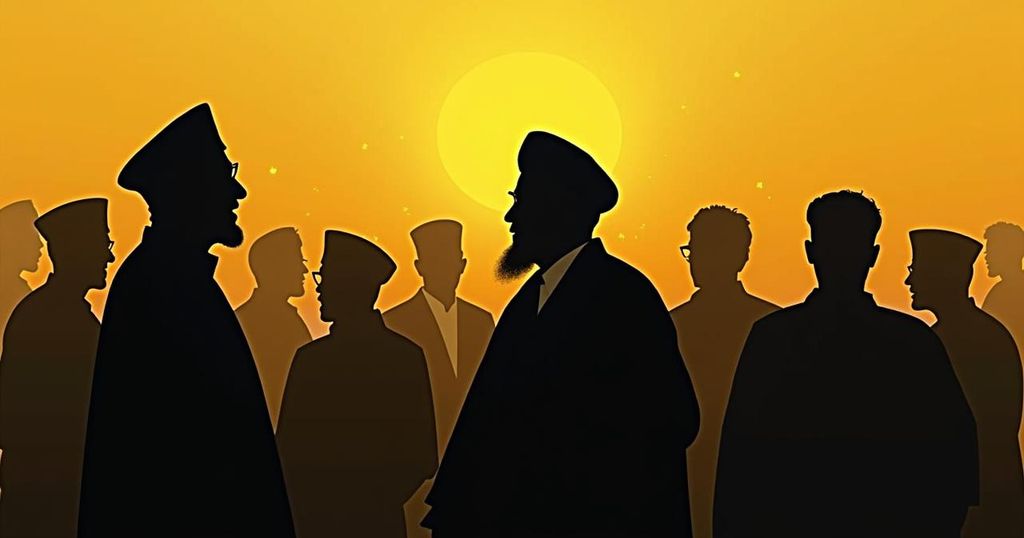Global Leaders Respond to the Death of Hezbollah Leader Hassan Nasrallah

Hassan Nasrallah, the long-time leader of Hezbollah, was reportedly killed in an Israeli airstrike in Beirut, prompting varied reactions from global leaders. Hezbollah vowed to persist in its resistance, while Israeli officials justified their actions against Nasrallah as legitimate under international law. Hamas and Iranian leaders expressed solidarity with Hezbollah, raising concerns about increased tensions in the region.
Global reactions to the death of Hezbollah leader Hassan Nasrallah have emerged following an Israeli airstrike in Beirut, marking a significant escalation in the ongoing conflict. Hezbollah confirmed Nasrallah’s death, referring to him as having joined his “fellow martyrs” and pledging to persist in their struggle against Israel and support for Palestine. This event has intensified fears of an expanded regional conflict. Lebanon remains deeply divided regarding Hezbollah’s influence, with some citizens viewing the group as a liberator, particularly from the perspective of its role in the 2006 war against Israel, while others criticize the sectarian strife that bolsters Hezbollah’s power. Salah Hijazi, deputy chief at “L’Orient le Jour,” described the news as “a shock” to the nation, suggesting it would not dismantle Hezbollah’s standing. From the Israeli perspective, the military justified targeting Nasrallah, claiming he was directly responsible for numerous attacks leading to both civilian and military casualties in Israel. Defence Minister Yoav Gallant reiterated that the conflict is not against the Lebanese populace, stating, “To the people of Lebanon, I say: Our war is not with you. It’s time for change.” Meanwhile, Palestinian group Hamas expressed its sorrow over Nasrallah’s death, claiming it would invigorate their resistance efforts. Ayatollah Ali Khamenei of Iran called upon Muslims to support Hezbollah in confronting Israel, asserting that the group’s role will be crucial in determining the region’s fate. The Iranian-aligned Houthis in Yemen voiced their commitment to the continued fight against Israel, indicating a unified front against perceived aggression. As tensions mount, the international community closely monitors the situation, particularly considering the potential ramifications of heightened hostilities in the Middle East.
Hezbollah, founded in the early 1980s in Lebanon, is a Shiite Islamist political and militant group that has played a crucial role in Lebanese politics and military actions against Israel. The organization’s leader, Hassan Nasrallah, became a prominent figure in the 2006 Israel-Lebanon war, which established Hezbollah as a significant regional power. The recent escalation of conflict, highlighted by Israel’s targeted strikes against Hezbollah leaders, raises critical concerns about regional stability and the potential for an expanded military confrontation.
The death of Hassan Nasrallah holds significant implications for Hezbollah and the broader geopolitical landscape in the Middle East. While Hezbollah vows to continue its fight, the diverse reactions from various factions underscore the fractured nature of Lebanese society and regional alliances. The immediate future remains uncertain, with potential escalations in conflict looming as different nations and groups react to this pivotal event.
Original Source: www.france24.com








